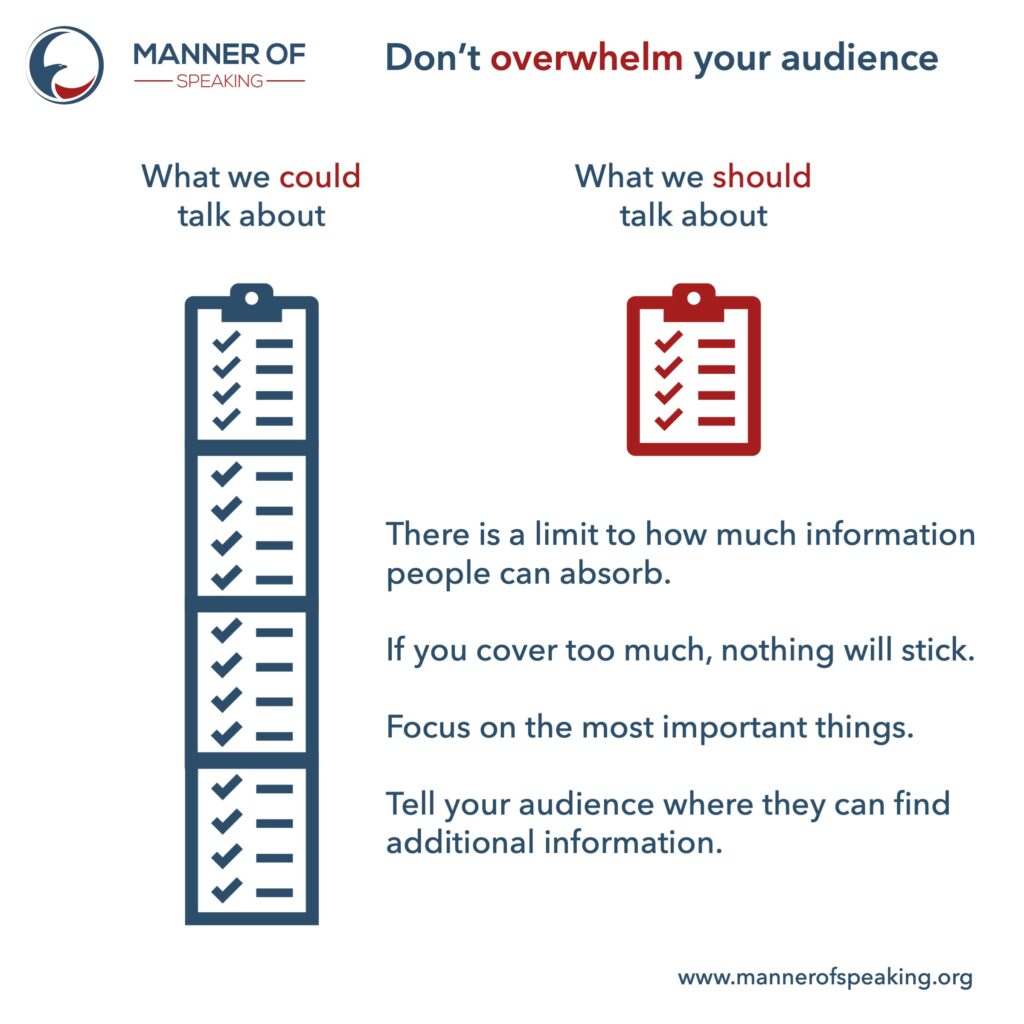
Don’t overwhelm your audience.
The speech
Many years ago, a multinational IT company invited me to a full-day event that they were hosting in Lausanne, Switzerland. The keynote speaker was the Head of the company’s Europe, Middle East and Africa division. His topic was new initiatives on which the company was working.
I was introduced to the speaker in the morning (before his keynote) and he asked me if I would give him some feedback afterwards. A sure sign of a growth mindset!
Of course, I was happy to oblige and when the time came for the keynote, I settled into my seat, looking forward to his talk. It was to be ~30 minutes.
He was an excellent speaker: engaging, fluid, natural. Lots to like.
He began by talking about the first thing the company was working on. Just as I was getting interested, he switched to the second thing. I mentally shifted gears and just as I was getting interested in the second thing, he switched to No. 3. Then, in quick succession, came No. 4, then No. 5, then No. 6, then … In the end, he covered 14 things!
It was overwhelming.
The feedback
When I met him afterwards, I told him all of the things that I liked, and then I said, “Look, my biggest piece of advice is this: Next time, don’t cover 14 things because, to be honest, I can’t remember any of them. Next time, just pick 3 things and go into the details.”
I will never forget his reaction.
He pounded his fist into his hand and said, “Dammit! I knew it! I told Headquarters that we were trying to do too much, but they told me to talk about everything.”
Even people at the top of the ladder get pressure to talk about everything. It is almost always the wrong decision.
Had the speaker said, “We are working on 14 exciting new initiatives and today, I want to tell you about 3 of them.” … and had the audience left remembering those 3 things but knowing that there were others … the speaker would have done his job and done it well.
If there are many aspects to your topic, don’t cover everything. Instead, pick what is most important and focus on that. If there is more that your audience needs to know, prepare a handout or tell them where they can find additional information.
Less is more. Don’t overwhelm your audience, dammit!















